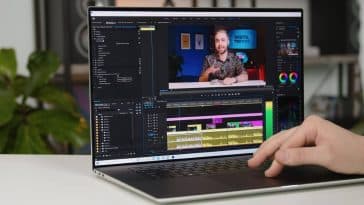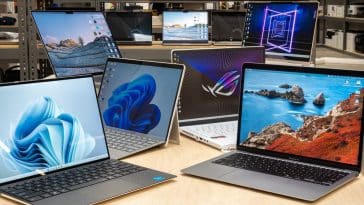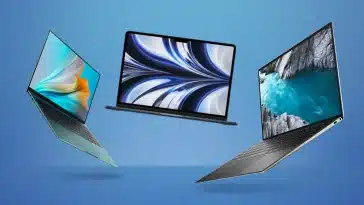When it comes to programming, having the right laptop is crucial. Whether you’re working on developing software, coding websites, or building machine learning models, your laptop should have the necessary specs to handle the workload. Many developers are also gamers or want to combine their love for gaming with their coding tasks. This brings us to an interesting question: How do I choose the best gaming laptop for programming? While gaming laptops are designed to deliver high-performance graphics and processing power for demanding games, they also provide excellent specifications for programming tasks.
In this blog post, we’ll explore the key considerations you should keep in mind when choosing a gaming laptop for programming, and how you can ensure that the laptop you pick will meet your coding needs while also providing top-notch gaming performance.
1. Processor (CPU)
The processor is the heart of any laptop, and for both gaming and programming, it’s essential to have a powerful one. For gaming, you need a CPU that can handle intense in-game calculations, while for programming, you want a chip that can manage compiling code, running virtual machines, and multitasking efficiently.
When choosing a gaming laptop for programming, look for Intel Core i7 or AMD Ryzen 7 processors at a minimum. These CPUs provide ample performance for coding, running multiple IDEs (Integrated Development Environments), compiling large codebases, and handling resource-intensive tasks like debugging. If you’re working with machine learning, data science, or AI models, a high-performance CPU will save you time during training and testing.
For gaming, a Core i9 or AMD Ryzen 9 processor can be beneficial if you’re looking to push your laptop to the limits with AAA games or intensive applications. These CPUs provide the power needed to handle both demanding games and programming tasks without lag or slowdowns.
2. Graphics Card (GPU)
While you might not think that a powerful GPU is necessary for programming, a good graphics card is essential for specific tasks like game development, graphic design, and programming with visual simulations. If you’re into game development or AR/VR programming, a robust GPU can greatly enhance your ability to test and simulate environments in real-time.
For general programming, a dedicated graphics card is a nice-to-have but not a must. That said, a NVIDIA GeForce RTX series (e.g., RTX 3060, 3070, or 4080) or AMD Radeon RX card will offer top-tier performance for gaming and allow for fast rendering of graphics. This is especially useful if you’re into game development or creating visual content alongside your coding tasks.
If your primary concern is coding and light gaming, you can opt for a laptop with an integrated GPU like Intel’s Iris Xe or AMD’s integrated Radeon graphics, which are suitable for most general programming needs.
3. RAM (Memory)
Having sufficient RAM is one of the most important factors when choosing a gaming laptop for programming. For gaming, 16GB of RAM is usually the sweet spot, but for programming, especially when running virtual machines, multiple applications, or containers, more memory will help ensure smooth performance.
For general programming, 16GB of RAM should be your minimum choice. It will allow you to run multiple development environments (such as Visual Studio, PyCharm, or IntelliJ IDEA) without any lag, and you’ll be able to multitask efficiently. For those working on more complex tasks like game development, data analysis, or running several virtual machines simultaneously, 32GB of RAM would be an ideal choice. It’s a bit overkill for basic tasks, but it provides ample headroom for heavy multitasking and larger codebases.
4. Storage (SSD vs. HDD)
The storage drive you choose is vital for overall system performance. Traditional hard disk drives (HDD) are slower than solid-state drives (SSD) and can cause significant lag when running applications or compiling code. For both gaming and programming, an SSD is a must-have. It offers faster load times, quicker file transfers, and overall improved system responsiveness.
A 512GB or 1TB SSD is ideal for a gaming laptop, as it provides ample space for your operating system, games, and development environments. If you’re working with large datasets, consider opting for a laptop with 1TB or more SSD storage. This ensures you have enough room for all your files, projects, and tools without worrying about running out of space.
5. Display Quality
When programming for long hours, you want a display that is clear, sharp, and easy on the eyes. A gaming laptop is generally equipped with high-quality screens designed for immersive visuals, which can also benefit you as a programmer. Look for a 1080p Full HD display as a minimum, but if you can afford it, go for a 1440p or 4K display for more screen real estate and sharper visuals.
Additionally, make sure the laptop has a high refresh rate (at least 120Hz or 144Hz) for smoother scrolling and gameplay. This is particularly important if you plan on gaming during your downtime.
6. Battery Life
Gaming laptops are notorious for having short battery life, mainly because of the power-hungry components like the GPU and high-performance CPU. However, if you plan to use your laptop for programming on the go, you’ll want a laptop that offers decent battery life to get through coding sessions without constantly being tethered to an outlet.
Look for a laptop that offers 6+ hours of battery life under typical usage, such as programming or browsing the web. Battery life may be shorter during gaming, but when coding, you should be able to get a reasonable amount of work done before needing to recharge.
7. Keyboard and Build Quality
A good keyboard is essential for programmers who spend hours typing. Many gaming laptops come with high-quality, responsive keyboards designed for fast input, which makes them ideal for programming. Look for a laptop with a comfortable typing experience, preferably with backlit keys for working in low-light conditions.
In terms of build quality, gaming laptops are generally well-built, but you should still ensure that the laptop is durable and portable enough for your needs. If you’re constantly on the move, consider a thinner, lighter laptop that’s still capable of handling both gaming and programming tasks.
Conclusion
Choosing the best gaming laptop for programming involves balancing performance, portability, and comfort. You’ll want a laptop with a powerful CPU, plenty of RAM, fast SSD storage, and a high-quality display to handle both gaming and programming tasks effectively. A dedicated GPU can be an added bonus if you’re into game development or working on projects requiring complex graphics.
With the right specs, a gaming laptop can offer the best of both worlds—high-performance gaming and a seamless programming experience. By considering your specific needs and choosing a laptop that matches your coding requirements, you can enjoy an efficient, versatile machine that performs well across all your tasks. Happy coding (and gaming)!




